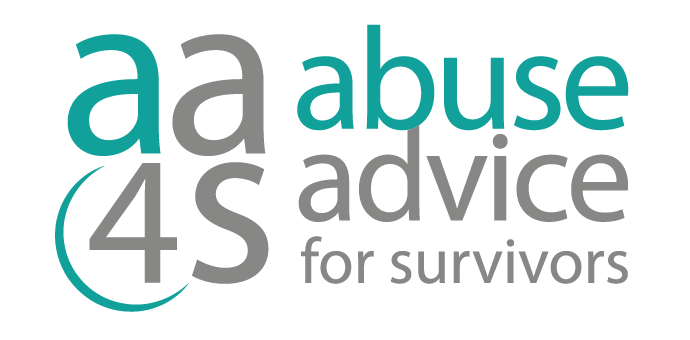Frequntly Asked Questions & Answers
Reporting the Crime to the Police:
In cases involving child abuse, the victim must contact the police as quickly as possible, either directly or through a parent, guardian, or other interested party. The victim of abuse will be asked to make a statement. A statement will be taken by one or more police officers in a police station or at the abused person's home.
Most police departments across the country have trained officers who take statements from children, persons with learning difficulties, or adults who have been sexually assaulted. These policemen are typically assigned to the Child/Public Protection Unit. Dial 101 from any phone to find your nearest police station.
In cases involving minors or adults with learning difficulties, the interview or sequence of interviews will be taped for the abuser's added safety.
A parent or other appropriate adult will be present throughout the interview if the interviewee is considered vulnerable (young, old, or disabled).
In other circumstances, the interview may be videotaped, taped, or a handwritten statement obtained in a suitable relaxed setting. Typically, a typed statement or visual recording with a written summary is created and, if necessary, signed by the individual giving the statement. If a case is filed and goes to trial, this statement will be used as evidence. Some police departments have better systems in place for dealing with claims of abuse than others.
A victim or witness does not have the right to have a solicitor accompany them to the police station, but they can ask a friend to join them. Solicitors are only needed when someone is being investigated for a crime. Any child or person with a learning disability will need to be accompanied to the police station by an appropriate adult, or if they do not have one, the police will arrange for a social worker to attend.
A Child/Public Protection Unit, a Family Protection Unit, or a Community Safety Unit is found in the majority of police departments.
The Metropolitan Police in London, for example, has implemented a Rape Chaperone Service. The Metropolitan Police Service state that they are 'conscious that rape is a sensitive and difficult crime to report, especially for men'. With the implementation of the Male Chaperone Service in the Metropolitan Police Service area, anyone seeking to report a rape can call their local police station and request to talk with a rape chaperone or have a rape chaperone visit them at home.
Rape chaperones are male and female police officers who have received particular training in dealing with rape victims. Rape chaperones are not professional counsellors, and it is not their responsibility to provide victims with emotional assistance. The Metropolitan Police Service nonetheless hope that 'their knowledge and awareness can minimise some of the anguish of reporting the crime of rape'
The Metropolitan Police Service rape chaperone's function is to act as the victim's primary point of contact with the Police Service. The rape chaperone will help with:
- explaining processes to victims;
- notifying victims of changes in their cases;
- offering useful information on appropriate support groups;
- making any necessary hospital appointments;
- and providing victims with information on the prosecution of the individual accused of rape.
Some police departments have SARCS (Sexual Assault Referral Centres) for rape victims, which are designed as comfortable areas away from the police station where all services such as forensics and questioning take place in a convivial setting, so that the victim's experience is as comfortable as possible. It saves the victim from having to go to numerous buildings while assisting the authorities in prosecuting an offender.
After making a statement, the person suspected of the abuse is usually arrested and interviewed under caution by police. In the police station, the accused can obtain free legal representation. If the police believe there is sufficient evidence against the accused, they will charge them with an offence and set a court date for the Defendant to appear before a Magistrate's Court. The Crown Prosecution Service (the CPS: Lawyers acting on behalf of the State or the Crown) will frequently advise the police on the strength of the evidence available and the possibility of the accused individual being convicted in court.
Sometimes the evidence presented by the individual making the claim is not corroborated by further or corroborative evidence from another source, such as a witness or forensic evidence, such as DNA evidence. In such cases, the Police and/or the CPS may decide not to charge the suspected person with a crime. This can be highly disheartening and discouraging for the individual who had the courage to make the charges of abuse in the first place, as it creates a sense of injustice. It is difficult to decide whether or not to charge and prosecute someone.
Upon hearing a case, the criminal courts must be convinced "beyond a reasonable doubt" that an offence was committed in order to convict a Defendant. This is known as 'the burden of proof'. The criteria is particularly demanding in order to avoid miscarriages of justice in which innocent persons may be convicted based on questionable evidence. The most severe penalty for an offence is imprisonment. If a court is to deprive someone of their liberty, the proof must be exceedingly compelling. As a result, if there is any weakness in the evidence against an accused person, the Police or the CPS may decide not to prosecute at an early stage.
The Crown Prosecution Service ('CPS') is a prosecuting authority that is independent of the government. The CPS, which consists of solicitors and barristers, makes decisions about criminal cases based on the weight of the evidence. The CPS lawyer will evaluate the case and weigh the public interest.
In criminal prosecutions, the CPS does not engage directly on behalf of individual victims or represent them in court. The CPS policy is to make choices that represent the overall public interest rather than the specific interest of a single person. "nevertheless, the interests of the victim are very important when we make decisions," the CPS states in their policy statement.
The CPS have published a public declaration of its principles in a statement of purpose and values, promising to "show sensitivity and understanding to victims and witnesses".
The Crown Prosecutor's Code clearly states that the CPS should evaluate the magnitude of the victim's loss or harm, as determined by the circumstances of the victim in question. The more serious the situation, the more likely a prosecution is necessary in the public interest. This category contains the vast majority of sexual abuse instances. As a result, it is critical for the CPS to understand how the crime affected the victim.
After the police have completed their investigations, they will forward a dossier of information to the CPS. The file will include details about the victims and witnesses. This will allow the CPS lawyer to evaluate whether a case should progress to prosecution.
The victim of the crime will naturally have a strong interest in the case in court. The CPS have indicated that they will "always try to help victims and witnesses at court by giving appropriate and useful information, although [our] other duties may constrain the extent to which this is possible".
The CPS further note, "The criminal justice system depends on the victims and witnesses to ensure that cases are properly handled at court. We understand that going to court can be a stressful experience...the CPS is committed to doing all we can to help".
If the victim/complainant is unhappy with the decision not to prosecute their abuser, they have the right to have the decision reviewed by someone other than the decision maker. Sometimes the decision is reversed.
A Court requires evidence before it can rule on the issues at hand. The Crown Prosecution Service will be compelled to present evidence to the Judge and Jurors.
Evidence can take the form of 'oral' evidence, in which a person talks to the court in the witness box; written evidence, such as a statement, document, or letter; 'forensic' evidence, such as DNA test results; or other evidence, such as a knife.
The individual bringing the abuse complaint (the victim of the crime) is usually the one who provides the court with first-hand evidence. Unlike in civil court, the victim of the crime is not a "party" to the court proceedings in criminal court. Instead, the victim is a 'witness' who will testify against the Defendant on behalf of the prosecution. The witness will not be able to hire their own lawyer or barrister. On behalf of the state, the CPS lawyer presents the victims' evidence.
If the Defendant is to be convicted, the Court must be satisfied beyond a reasonable doubt that he is guilty of the offence with which he has been charged. This is known as the 'burden of proof'. In a criminal court, the burden of proof is higher than in a civil court.
The victim's function is to act as a witness in order to present evidence to the court; to tell the court what happened.
If the case goes to trial, the victim will usually be obliged to appear in court and testify. The CPS lawyer (a barrister or solicitor) will question the witness based on their witness statement in order to explain the Court what transpired, so presenting the evidence.
All evidence presented by the CPS may be challenged by the defendant. To accomplish this, the Defendant's counsel will question the witness in order to discredit or criticise the witness's account. This is known as cross-examination.
The victim is frequently granted "special measures" in terms of how he or she delivers evidence. Read the question about "exceptional measures" for further information.
The court may also decide to question the witness in order to explain any aspects of the evidence.
A victim of abuse is classified as a vulnerable adult, just like a child or a person with a learning disability. They are entitled to extraordinary measures in criminal proceedings. Special Measures include the following:
- Live Link
- Screens
- Judges and barristers remove their wigs and gowns
- Giving evidence in private.
- Evidence captured on video
- Examination of a witness by an intermediary
- Communication aids
The CPS lawyer may question the witness and the defence lawyer may cross-examine him. Furthermore, the witness may choose to testify in Court but behind a screen. If evidence is provided to the police through a videotaped interview, this can serve as the foundation for the victim's testimony, avoiding the need for them to repeat their testimony. This facility has now been expanded to assist all abuse victims. which includes providing their evidence to the court via video link while the witness is in a separate room in the court building. There are other provisions. Further information can be found at http://www.cps.gov.uk/legal/s_to_u/special_measures/.
While the aforementioned regulations apply to criminal proceedings, there are no court rules in place for civil proceedings, but an application to Court can be made, which is typically successful.
This approach is meant to protect the victim as much as possible and to minimise the stress of presenting evidence in court as much as possible, while still enabling the defendant the ability to question the evidence.
A victim of abuse is considered a vulnerable adult in the same way as a child or a person with a learning disability. In criminal cases they are entitled to special measures. Examples of Special Measures are:-
- Screens
- Live Link
- Evidence given in private
- Removal of wigs and gowns by judges and barristers
- Video recorded evidence
- Examination of a witness through an intermediary
- Aids to communication
The witness may be asked questions by the CPS lawyer and cross-examined by the defence lawyer. Additionally the witness can choose to give evidence in Court but behind a screen. If evidence is given to the police by way of a recorded interview on camera, then this can form the basis of the victim’s evidence, so as to avoid the need for them to give their evidence all over again. This facility has now been extended to include all victims of abuse. which include the giving of their evidence to the court by way of a video link with the court while the witness is in a separate room in the court building. There are other provisions. For more detail go to http://www.cps.gov.uk/legal/s_to_u/special_measures/
Whilst the above rules apply in criminal proceedings, there are no rules of court, yet, specifically for civil proceedings, but an application can be made to Court, which is usually successful.
This procedure is intended to protect the victim as much as possible and to minimise as far as is possible the trauma of giving evidence in court while at the same time allowing the defendant his right to challenge the evidence.
The Criminal Courts are classified into two types. There are two courts: the Magistrates' Court and the Crown Court. Any criminal charges, including child abuse allegations, will be heard in Magistrates' Court before being forwarded to Crown Court.
When an accused individual is charged with an offence, there will normally be a series of short hearings in a Magistrates' Court over a period of time to deal with procedural and administrative issues.
The Crown Court: Following the initial Magistrates' Court proceedings, the Defendant is normally referred to the Crown Court for trial. If the offender admits the charges, the Crown Court Judge will sentence them without the victim having to appear in Court to give testimony. If the Defendant denies the charges, the CPS must submit the evidence to the Court during a trial. It can take several months from the time the accused is charged with the offence at the police station until the trial is held in the Crown Court.
The victim is, however, entitled to make a "Victim Statement" which is read out to the Court before the Defendant is sentenced, and is taken into account by the Judge. The statement should explain how the victim feels and how badly the abuse has affected him/her
If the jury finds the Defendant guilty of the offence for which he was charged after hearing all of the evidence, the judge will impose a punishment. This might be done at a separate hearing. The penalty will almost certainly involve a prison sentence.
No, the duty of the criminal court is to decide whether or not a person has committed an offence and, if so, to punish them. In general, the victim of a crime will not be compensated by the court, even though the power does exist.
Under the Criminal Injuries Compensation Plan, a separate scheme for compensating victims of crime may be provided. By going here, you may access the Handbook to the Criminal Injuries Compensation Scheme.
The victim of the crime may also be able to seek restitution in civil court. Click here to access the Civil Court Process Guide.
You have been chosen to be a witness because you have something to say ('evidence') that may assist someone who is filing a compensation claim in Court, disputing a compensation claim, or in connection with criminal proceedings against a person.
A person interested in the case or their lawyers may invite you to be a witness, for example, if you witnessed an incident or had any role before or after the incident that may be relevant to the case. You will be a 'witness of fact' in this case.
You will be considered a 'expert witness' if you have specific qualifications, expertise, or abilities and can provide a professional opinion, such as about injuries.
If you are asked to be a fact witness, you may refuse; nevertheless, the party who asks you or their solicitor may take steps to compel you to appear in Court as their witness. The Court can issue a Witness Summons at the request of a party or their solicitor, alerting you that you must appear in Court as a witness and informing you when and where to appear. If you do not appear in Court when summoned, you will be in 'contempt of Court' and could face a fine of up to £1,000.
If you are unable to attend Court on the designated time and date, you may apply to have the Witness Summons removed. Always try to notify the other party or their solicitor as soon as possible if you have something planned, such as a vacation or a hospital visit, that may alter the dates when you may appear in Court.
Always try to contact the party or their solicitor to discuss any arrangements, as they may be able to assist you with any problems you may be experiencing. If they are unable to assist, you may need to submit a special application to the Court well in advance of the Court hearing to which you have been summoned as a witness. If necessary, the Judge may rescind the Witness Summons.
Even if you have consented to be a witness, the party's counsel may issue you a Witness Summons. You could also request a Witness Summons, which you could use to show to your employer when you request time off work to attend the Court hearing.
In most circumstances, you will have previously been asked to provide a written Witness Statement. The Witness Statement should be written in your own words and should include the following information:
- your full name,
- residence, and occupation;
- specifics of the evidence you intend to deliver in Court;
- a statement that the evidence is true
- the date and your signature.
At the Court hearing, the Judge will decide whether you must provide oral testimony in addition to your written witness testimony or whether your written testimony is sufficient.
Read the question concerning video evidence above for special measures about how vulnerable witnesses can be given evidence.
Be certain of the time, date, and place of the Court hearing, as well as its actual location. Every Court has its own booklet that tells you where it is and if it has any unique facilities. If you request it, the Court will send you a brochure.
If you have a disability that makes going to Court or communicating in Court difficult, you should notify the person who asked you to go to Court ahead of time so that they fully appreciate any challenges you may have. You should also contact the Customer Service Officer at the relevant Court. You can also call The Court Service Disability Hotline at 0800 3583506 between 9.00 a.m. and 5.00 p.m., Monday through Friday. This number is toll-free. You can utilise the mini-com service on 0191 4781476 if you are deaf or hard of hearing.
Before coming to court, make sure you know what documents or papers you will need to bring to court and that you have all of the necessary case materials. Check that they are in the correct order and that you can quickly and easily refer to them.
Courts are often quite formal, and you should dress accordingly.
The amount of time you spend in Court is frequently greater than you anticipated. Delays are common, and you should be prepared for them. You may bring a companion to keep you company, or you could bring a book or something to keep you occupied while you're there.
If possible, visit the Court before the day you are scheduled to appear as a witness to observe where the hearing will take place. Having a better understanding of what the Court looks like from the outside and inside will usually assist to alleviate any concerns you may have. You can request that a member of the Court staff show you where you will give your testimony. It is best to make this arrangement with the Court ahead of time so that they can schedule an acceptable time.
Some solicitors may want you to come to their office before going to Court so that you can discuss the evidence you will submit and get a sense of the type of questions you might be asked at the Court hearing.
Always come on time. When you arrive at Court, notify the receptionist or the Court usher of your arrival and the name of the case in which you are involved. The Court usher will typically be dressed in a black gown. A notation will be made that you have come, making it simpler for the other individuals engaged in the case to find you, potentially by tannoying for you over the loud speaker, so pay attention for this.
Next to the waiting area, there is usually a list of cases that are being tried in the Court that day. The list will tell you which Court your case will be heard in and who the Judge will be. This information is subject to change, so keep checking back.
If you must leave the waiting room for whatever reason, always notify the Court usher or another person involved in the case so that you can be located if necessary.
Don't be surprised if there are last-minute adjustments while you're in Court. For example, you may be notified that the case was resolved at the last minute and that the hearing is no longer necessary. Occasionally the hearing can be adjourned without your testimony, or you may be told that your testimony must be postponed until later in the day or on another day.
When it is your turn to testify, the Court usher will normally call your name and lead you to the witness box. You should stand up, or if standing is uncomfortable for you, you might ask to sit down.
Typically, witnesses are allowed to sit in Court before giving testimony and to remain in Court after giving evidence. Nonetheless, either party in the case might request that a witness remain outside of the Court until it is their turn to give testimony. If this occurs and the Judge approves, you will be informed and shown where to wait until the usher summons you to the hearing.
After entering the witness box, you will be asked to take an oath, which means you will be asked to swear that what you are about to say in Court is true. An oath is taken on the bible or another holy book, and you will be handed a card to read or told what to say by the usher. If you prefer not to swear on a sacred book, you can give the Court a pledge to tell the truth (an affirmation). It will help if you notify the usher that you want to 'affirm' or whatever holy book you want to be sworn on before entering the Courtroom.
The solicitor or barrister who has summoned you to Court will initially question you about your Witness Statement. When that solicitor or barrister has asked you questions, the solicitor or barrister for the opposing party will normally ask you questions to corroborate your statement. This is known as cross-examination. The Judge may wish to question you as well.
A solicitor will typically wear a gown, whereas a barrister will typically wear a wig and gown. In addition, the Judge will frequently wear a wig and Court robes.
Depending on the nature of the case, there are various types of Judges. The Judges are addressed based on the type of Judge they are.
- A District Judge is addressed as 'Sir' or 'Lady' in County Court.
- In the County Court, a 'Circuit Judge' is addressed as 'Your Honour'.
- A High Court Judge is referred to as 'My Lord' or 'My Lady'.
If you are confused about which type of Judge will hear your case or how to address the Judge, ask a member of the Court staff or a party's solicitor.
When providing evidence, remember to speak clearly and to address your responses to the Judge rather than the person who is asking the questions. Always try to remain calm and avoid becoming irritated if you are asked questions that you believe are unjust. If you do not comprehend a question or cannot hear what was stated, do not be hesitant to express your confusion. If you need to refer to any papers, you must first obtain permission from the Judge.
The length of your time in the witness box will be determined by the questions you are asked. This could range from a few minutes to several hours.
After you have delivered your testimony, you will be told that you are'released' and can leave the hearing. You should only leave the Court premises if you are discharged before the case is completed.
If you are released, for example, during a lunch break or other break, you may be requested to return later that day or another day. The Judge will instruct you not to speak to anyone about the matter until you have completed your testimony.
The solicitor who wants you to testify may arrange for you to contribute to:
- Your travel expenses to and from the Court.
- A reasonable payment to reimburse you for any lost income as a result of your appearance in court.
- The expense of overnight accommodation, if required.
However, the costs that can be paid in regard to expenses are merely a contribution, and in some situations are limited to a certain amount. They would almost never fully reimburse you for any wage loss.
Always be prepared to appear in Court if summoned. In advance, request full details from the solicitor or the Court, including:
- the date, time, and location of the Court hearing;
- a map indicating how to reach the Court;
- information about public transport services and nearby parking lots;
- information about public transport services and nearby parking lots;
- details about the Court's facilities, such as food and drinks, a phone, and separate waiting spaces.
Similarly, if you have made a statement, read it before you leave to refresh your recollection. If you can't find your copy, ask your solicitor to send it to you.
Q: What Information Should Be Included in My Expert Report?
The Court Rules specify the standards for expert reports. You owe it to the Court to assist it with all matters within your area of expertise. Your obligation to the Court takes precedence over any obligation you may have to the party instructing you or paying for your report.
Your report should always be directed to the Court, not the party who instructed or requested you to make it.
Your report must include information on:
- your name and qualifications; any documents or other materials on which you based the report;
- any individual who performed any test or experiment included in the report, identifying their qualifications and whether the test or experiment was performed under your supervision;
- provide an overview of any variety of opinions expressed in the study as well as justifications for your own;
- a declaration that you understand your duty to the Court and that you have fulfilled that duty;
- a summary of any written and oral directions provided by the party requesting the report;
- a signed Declaration of Truth verifying the report's contents, that is, "I believe that the facts I have described in this report are true and that the opinions I have expressed are true," followed by your signature.
You may face a fine or imprisonment if you willfully provide inaccurate information in your report and have validated it with a Statement of Truth.
Sometimes the opposing party in a case would agree to utilise a certain report as evidence. If this occurs, you may not be required to attend the Court hearing. You will be informed if you do not need to appear in court. The normal rule is that you will not be compelled to appear in Court, and your evidence will be restricted to your written report. If you are called to give evidence in Court, the person who requests your report will notify you when and where to appear, or they will send you a Witness Summons.
Q: Can I decline to serve as an expert witness?
If you are requested to be an expert witness, you must consider whether you have the time away from your job or business to create a report and maybe testify in court.
You should think about these things before deciding to write a report. If you agree to prepare a report and are asked to appear in Court, you will be required to do so and may be summonsed.
As an expert, you will be entitled to a reasonable sum to compensate you for any lost income and travel expenses incurred while attending Court. This should be discussed beforehand with the solicitor who is instructing you.









